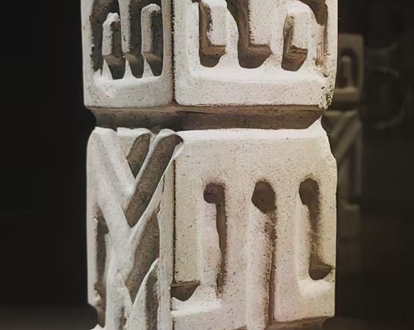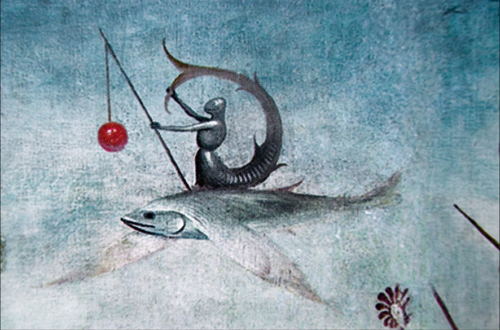January 26, 2018
“Everything I do, I do it with joy”.
Michel de Montaigne (2007, p.588)
Diego Tapia Figueroa, Ph.D. and Maritza Crespo Balderrama, M.A.
From Quito, Ecuador, we open this space for transformative and relational dialogues, from social-relational constructionism; trusting that it will be a useful contribution in our contexts to generate new questions, conversations, and creative, reflective, meaningful, different possibilities.
Seeking that our narrations and actions generate the joint creation of new meanings in committed coordination for socially responsible practices.
From a language that focuses on resources and is capable of constructing contextualized human worlds, in a process of building social worlds that signify transformative processes; from a sensitive and critical understanding of how dialogue builds people and enriches possibilities.
This being with others, generating connections, with relational ethics, radical presence, consistently making consistent questions. Nurturing innovation with permanent curiosity, imagination, creativity, and respect, accepting differences, and opening to diversity.
Trusting in the processes of dialogue, trusting in relationships, in the joint construction of meanings-words-actions-poetic connections; of other senses of being with others, caring for relationships, consistently contributing to the evolution of new dialogues.
Working with love, intelligence, and creativity in the face of the cruel and unjust status quo; free from prejudice, free from the common sense that naturalizes exploitation, for example: enriching ourselves with the best of the humans, which is expressed in art, literature, cinema, music; dialoguing from reflective pragmatics, from complexity, to embrace uncertainty.
With the Relational and Social Constructionist Consortium of Ecuador (IRYSE), we invite professionals and people interested in working- jointly in a reflective way – in therapeutic, educational, artistic, organizational, social, and community processes, through dialogue, a transformative dialogue.
We care about human rights, especially those who are in a situation of greater vulnerability (children, women) and, therefore, we propose relationships through a language capable of signifying possibilities and alternatives, with consistent arguments in favor of justice, equity, inclusion; with responsible social practices that are sustained in relational ethics -as a way of caring for the other- in caring for relationships and in the language that enables social involvement in constant, conscious and joyful participation in the co-creation and co-construction of significant social connections and relational contexts with others.
We consider that the process is what matters; it involves transforming dialogue (doing with the other) in conversational spaces that build relationships that generate well-being. We are guided by questions such as: «What kind of relational realities do you want to participate in?» (McNamee, 2012), to inhabit and embrace the uncertainty of the complex human condition. Deciding to choose curiosity and respect as the human, epistemological and professional place from which we can choose to relate to others.
We propose to open up to the difference -which is the other- with respect, curiosity, complexity, surprise. Searching the senses to jointly transform the meanings. We recognize the importance of inviting and offering the space for the expression of multiple voices, asking ourselves how we can promote the participation of other voices, of all the voices present (John Shotter, 2015).
The relational ethics in which IRYSE supports its proposal raises the creation of spaces to initiate conversations (poetic and political) based on curiosity, strengthening the sense of belonging to the local Ecuadorian context; coordinating the complexity, and inviting to imagine new possible futures from the relational, social perspective. We need to choose words that allow us to work with many possible worlds.
These perspectives are focused on what happens “between” people because that is where relational processes occur (Harlene Anderson, 2016). This philosophical stance becomes a philosophy of life. A vision of the world that does not separate the professional from the personal. As professionals and individuals, we invite Ecuadorian society to approach and become interested in research processes that develop relational trust, open to pragmatic questions about relations: 1) Do they contribute? 2) Do they matter? 3) Are they useful? 4) What is the different and significant thing that we do together?
IRYSE proposes to guide conversations towards the creation of possibilities by promoting connections with the meanings of life, in constant movement. The quality of our conversations tells the quality of our relationships. Promote the constant question about the commitment of each one in every meeting, in what we are doing together in that space, and asking ourselves where we want to go, where we can go, for what purposes, how we can learn and innovate together.
We want to be sensitive to the interactive moment, to what is happening in the relationship. The process needs participation, democracy, good humor, flexibility, valuing what does work, and imagining what could be (Dora Fried Schnitman, 2017). We want not to avoid the questions about how to bring our resources to this dialogue with a transformative purpose? How am I interacting here? What can I contribute, say and do differently in this relational context to build the language -of life- what would I like? Appreciative dialogue is based on focusing on the positive to make it grow. Build trust together, and move on.
We follow Sheila McNamee (2017) when she asks: How can we take care of our relationships, jointly creating life, meaningful life? What kind of future can I contribute to? In the dialogues that we promote, people are invited to open to new ways of understanding and accepting differences. We build connections and relationships with the other, getting involved in the process and conversational context, considering what others need, generating trust and a sense of belonging, taking care of the dignity of people and relationships. Then the projects come up. Who are we, and how would we like to be? How and why are we going to collaborate in this space? How can we speak differently about our practices? Are there more prospects? It is about coordinating relational and communicational processes to generate well-being, with openness and flexibility.
This 2018, we began with IRYSE, the journey of co-creating positive paths from a relational-social, innovative and critical constructionist stance, which expands the relational possibilities of being, saying, and acting. This means promoting reflection on how we propose ourselves in encounters with others and choosing to do so without prejudice. Choose, not only to recognize the resources we have but what we can do with them (Kenneth Gergen, 2017). We are relationally committed to the co-creation of a new culture that questions itself about social processes, that invites us to think creatively about the ideas we share, choosing to dialogue with words for the future.
We want to invite you to join the journey, with the joy and optimism, understandings and exchanges that make encounters possible, and with the confidence that everything is yet to be built and that, together, we can make significant differences, innovative projects, coordinate new possibilities and transform our relational-social contexts.

English translation of all the articles in this section: Bruno Tapia Naranjo.

